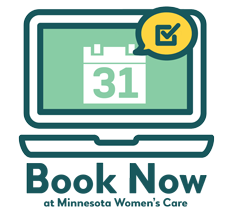Bladder Health: How Your Diet Influences Symptoms of Overactive Bladder
By Rachel Tank, DNP
Urogynecology
Eliminating Bladder Irritants to Help Overactive Bladder
Struggling with urgency, frequency, or leaking? Your diet might be a good place to start. Foods and drinks that irritate the bladder can trigger symptoms of overactive bladder (OAB) or exacerbate them. By identifying and reducing these irritants, many find noticeable relief.
Common Bladder Irritants Include:
- Caffeine: Found in coffee, tea, soda, and energy drinks.
- Alcohol
- Carbonated Drinks
- Artificial Sweeteners
- Citrus Fruits and Juices
- Tomato-based Products
- Spicy Foods
- Chocolate
Not everyone reacts the same way to these irritants, so a useful approach is to eliminate them from your diet for 1–2 weeks and then reintroduce them one at a time. Keeping a bladder diary during this process can help you track symptoms and pinpoint which items exacerbate your condition.
Simple Tips to Support Bladder Health:
- Switch out coffee for herbal tea or infused water to minimize bladder irritation.
- Maintain proper hydration—aim to consume around 64 oz of fluids daily. Both dehydration and overhydration can aggravate OAB symptoms.
- Monitor your urine color for guidance; light golden yellow is ideal. Dark, tea-colored urine suggests dehydration, whereas completely clear urine could indicate overhydration.
- Always check labels on flavored waters, sauces, and packaged foods for hidden irritants.
Bladder-Friendly Herbal Tea Options:
Wondering what to drink instead of coffee or regular tea? Herbal teas are a wonderful substitute. Here are some generally bladder-friendly options:
- Chamomile Tea
- Peppermint Tea (Note: This may be irritating for some individuals)
- Ginger Tea
- Lavender Tea
Introduce one new tea at a time and observe your body's reaction. Opt for unsweetened varieties and steer clear of those with added caffeine or artificial flavors.
Homemade Flavored Water Ideas (Without Citrus):
Looking for a refreshing alternative to plain water? Consider these bladder-friendly combinations, which are free from citrus and artificial sweeteners:
- Cucumber + Mint
- Blueberry + Basil
- Watermelon + Rosemary
- Strawberry + Mint
- Pear + Ginger Slices
- Raspberry + Sage
Simply add a few slices of fruit and herbs to a pitcher of water and let it infuse in the fridge for at least 1–2 hours for optimal flavor. Be sure to consume it within 24 hours.
When to Seek Support: If dietary adjustments aren't relieving your symptoms of overactive bladder, it’s important to seek further assistance. At Minnesota Women's Care, our Urogynecology Center is dedicated to providing specialized care for these concerns. We offer comprehensive evaluations and personalized treatment plans that may include pelvic floor physical therapy, medications, and other advanced therapies. Don’t hesitate—schedule an appointment with one of our specialists today and take the first step towards improved bladder health.
Topics
Share this page:
About the Author
Rachel Tank, DNP
Urogynecology
 Rachel Tank, DNP, CNP, WHNP, is a dedicated urogynecology specialist at Minnesota Women's Care. With her extensive background as a board-certified Women’s Health Nurse Practitioner and Doctor of Nursing Practice, Rachel brings a deep understanding of women's health issues to her role.
Rachel Tank, DNP, CNP, WHNP, is a dedicated urogynecology specialist at Minnesota Women's Care. With her extensive background as a board-certified Women’s Health Nurse Practitioner and Doctor of Nursing Practice, Rachel brings a deep understanding of women's health issues to her role.
Her professional journey has been marked by significant experiences at renowned institutions such as the Mayo Clinic and The Mother Baby Center at Abbott Northwestern Hospital. Rachel is passionate about empowering women to manage their health conditions through education and evidence-based treatments. At MNWC, she specializes in addressing complex bladder and pelvic floor disorders, offering personalized care plans that align with each patient's unique health needs.
